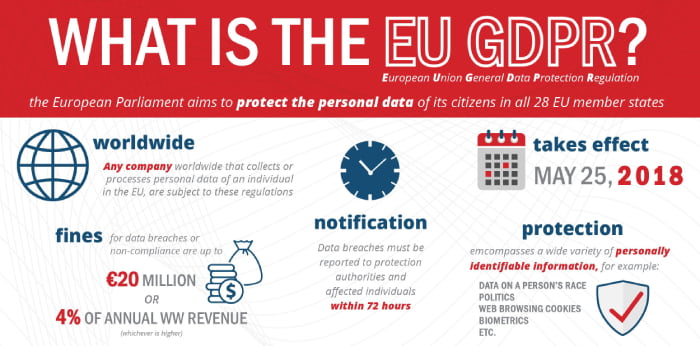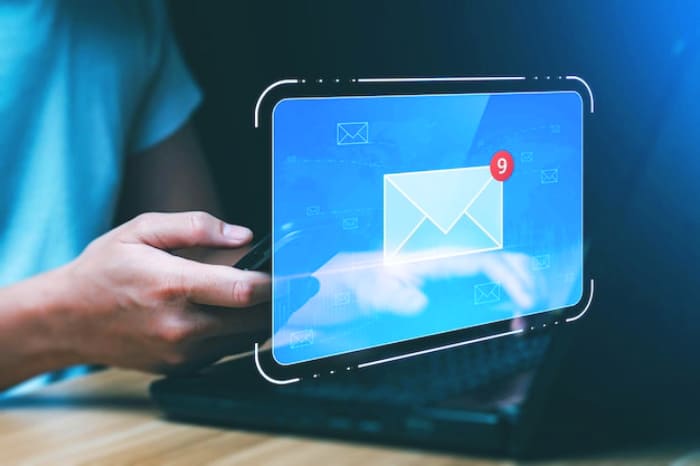BIMI and GDPR Compliance: How to Ensure Data Privacy and Boost Email Security
This text shares how GDPR and BIMI play a crucial role in data privacy and email security and describes why businesses need to leverage BIMI and ensure GDPR compliance.
In recent years, businesses have increasingly relied on email marketing to engage customers and drive sales. However, with the rise in cyber attacks and concerns over data privacy, it’s becoming more critical for organizations to implement measures to protect their customers’ personal information.
One such measure is the implementation of BIMI, or Brand Indicators for Message Identification, which allows enterprises and businesses to display their brand logos directly in email inboxes. This article will explore the relationship between BIMI and GDPR compliance and share why businesses must ensure GDPR compliance and leverage BIMI.
Why does Email Security Encompass Data Security and GDPR Compliance?
Email has become an integral part of daily communication in today’s digital world. However, with email usage on the rise, it’s essential to recognize that personal data is often stored within email communication. Such personal data is subject to the European Union’s General Data Protection Regulation (GDPR), requiring organizations to protect personal data in all its forms and strengthen people’s privacy rights.
GDPR and Email Encryption
As per the GDPR, any organization that handles the personal information of EU citizens or residents, including enterprises, charities, and micro-enterprises, is subject to the GDPR. The same applies to organizations that offer goods or services to people in the EU, regardless of where they are located. To comply with GDPR, organizations must secure people’s data and make it easy for them to control their data.
Failure to comply with GDPR can result in significant fines and compensation for damages.
While many discussions around GDPR email requirements have centered around email marketing and spam, it’s essential to consider other aspects, such as email encryption and safety, that are equally important for GDPR compliance.
What Does The GDPR Enforce?
The GDPR’s data protection principles include “lawfulness, fairness, and transparency,” meaning that data can only be used if it falls under one of six legal justifications and that consent must be freely given, specific, informed, and unambiguous. There are six lawful bases for processing data, including approval and having a legitimate interest.
The ePrivacy Directive provides another way for organizations to use data for marketing purposes, as long as customers can opt-out anytime and unsubscribe from every communication. It’s essential to be cautious when using someone’s data and ensure they want it used that way, including emails.

Image sourced from blog.rsisecurity.com
Some commentators had predicted that the GDPR would spell the demise of email marketing and spam. However, it has become apparent that both are different. The sending of unsolicited or malicious mass emails has always been prohibited, and such activities will likely continue despite the introduction of the GDPR.
If you look at your spam folder after the GDPR came into effect in 2018, it is doubtful that you would have noticed any significant changes.
How does BIMI Fit into the Play with Email Security?
Using BIMI, businesses can provide a consistent brand image across email communications, increasing brand recognition and building customer trust. In addition, by implementing BIMI, businesses can differentiate themselves from fraudulent email senders, making it easier for recipients to identify legitimate messages from their brand.
While BIMI provides authentication functionalities for an organization, it is still recommended to employ DMARC (Domain-based Message Authentication, Reporting, and Conformance) to safeguard its reputation.
DMARC, in conjunction with SPF (Sender Policy Framework) and DKIM (DomainKeys Identified Mail), is crucial for maintaining a credible reputation and avoiding blocklisting by implementing a quarantine or rejection policy. Although BIMI helps to enhance email authentication by incorporating brand logos, it cannot guarantee absolute safety against malware. As such, both DMARC and BIMI are essential for providing maximum security and maintaining the reliability of email communication.
The Role of GDPR in Email Security
The GDPR was never designed to stifle business operations but to safeguard consumer interests. Notwithstanding, the regulation does impose specific requirements for email marketing. For instance, to be GDPR-compliant, organizations must obtain unambiguous consent from recipients to receive marketing emails and make it effortless for people to opt-out.
Nevertheless, marketing emails that offer value to the recipient and promote services or products related to ones the recipient already uses are still permitted under the GDPR. Only those who breach the regulation’s rules on consent lack the option to unsubscribe or target individuals who never opted in to violate the GDPR.
Why do Businesses need to Leverage BIMI and Ensure GDPR Compliance?
For several reasons, businesses need to leverage BIMI and ensure GDPR compliance for email security, some of which are:
- Additional Authentication: BIMI provides an extra layer of email authentication, which helps to prevent email spoofing and phishing attacks, as well as increasing the deliverability and open rates of legitimate marketing emails, which is vital for maintaining the reputation and trustworthiness of a business’s brand.
- Business Reputation: GDPR compliance is crucial for businesses that process personal data, including email addresses. The GDPR requires businesses to obtain affirmative consent from individuals before sending them marketing emails and to allow them to quickly opt out of receiving such emails.
- Data Privacy and Email Security: Leveraging BIMI and ensuring GDPR compliance demonstrates a business’s commitment to data privacy and security, which is becoming increasingly important to consumers. Businesses can build trust and credibility with their customers and stakeholders by prioritizing email security and respecting individuals’ data privacy rights.

Final Words
Leveraging BIMI and ensuring GDPR compliance are essential steps businesses should take to enhance email security and protect data privacy. BIMI helps establish brand trust and authenticity in email communications, while the GDPR sets the standards for data privacy and consent in processing personal data.
By adopting these measures, businesses can mitigate the risks of email fraud and cyber threats and foster a stronger relationship with their customers by demonstrating their commitment to protecting their personal information.







